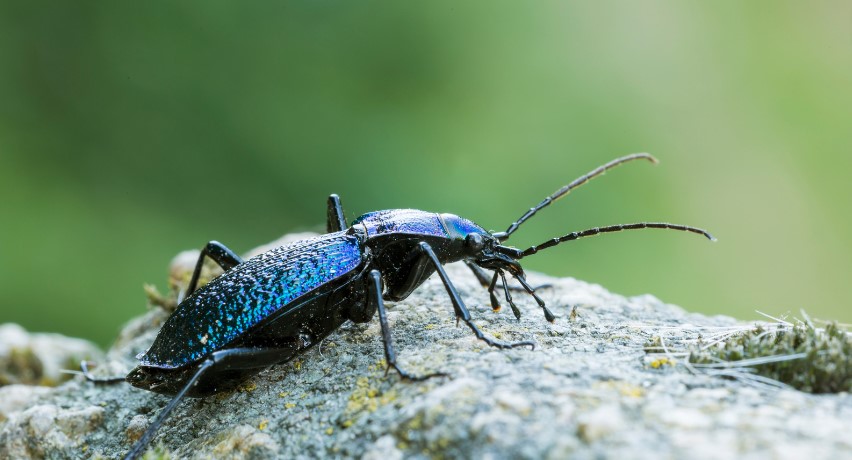Ground beetles are common garden insects that can become a nuisance when their populations grow out of control. These beetles are generally beneficial for gardens, as they prey on various garden pests like slugs, caterpillars, and aphids. However, when their numbers increase significantly, they can start to damage your plants and become a problem. If you’re facing a ground beetle infestation and need to get rid of them, this article provides you with effective pest control strategies.
How to Get Rid of Ground Beetle?
Before you begin any pest control measures, it’s essential to identify the specific ground beetle species you’re dealing with. Ground beetles come in various shapes and sizes, and not all of them are harmful to your garden. Some are actually beneficial because they feed on other pests. Identifying the species will help you determine whether intervention is necessary.

Reduce Attraction Factors
To prevent ground beetles from invading your garden in the first place, it’s crucial to eliminate factors that attract them. Some of these factors include:
- Moisture: Ground beetles thrive in damp environments. Ensure good drainage in your garden to reduce excess moisture.
- Mulch: Avoid using thick layers of mulch, as ground beetles often hide in it.
- Weeds: Remove weeds and tall grasses where ground beetles can hide during the day.
- Overripe fruits and vegetables: Ground beetles are attracted to decaying organic matter. Remove any rotting fruits or vegetables from your garden.
Use Physical Barriers
Creating physical barriers can be an effective way to keep ground beetles away from your plants. Consider the following options:
- Copper tape: Placing copper tape around the base of plants can deter ground beetles as they get a mild electric shock when they come into contact with it.
- Row covers: Use row covers to protect plants from ground beetles. These covers allow sunlight and rain to reach the plants while keeping the pests out.
Use Natural Remedies to Get Rid of It
Since ground beetles themselves are predators, you can introduce other beneficial insects to your garden that will feed on them. Some options include:

- Diatomaceous Earth: Sprinkle food-grade diatomaceous earth around entry points and areas where you suspect ground beetle activity. This natural remedy is safe for humans and pets but lethal to insects.
- Citrus Peels: Ground beetles are repelled by the scent of citrus. Place orange or lemon peels around entryways or in areas where you have seen beetle activity.
- Nematodes: These microscopic worms can help control ground beetle larvae in the soil.
- Predatory insects: Attract predatory insects like centipedes and parasitic wasps to keep the ground beetle population in check.
Use Chemicals to Control the Infestation
- Insecticides: Use insecticides specifically designed to eliminate beetles. Follow the instructions carefully, and apply the insecticide around the perimeter of your home and in affected areas of the garden.
- Natural Pyrethrin Sprays: Natural pyrethrin sprays derived from chrysanthemum flowers can be used to repel ground beetles. Spray the solution on plants and around entry points.
If your ground beetle infestation persists, consider seeking professional pest control services. Pest control experts have the knowledge and tools to eliminate ground beetles from your home and garden effectively.
Conclusion
While ground beetles are beneficial in controlling other pests, their overpopulation can cause problems for homeowners and gardeners. You may efficiently get rid of ground beetles and enjoy a pest-free living environment by taking preventive steps, employing natural therapies, and contacting professional pest control services.






